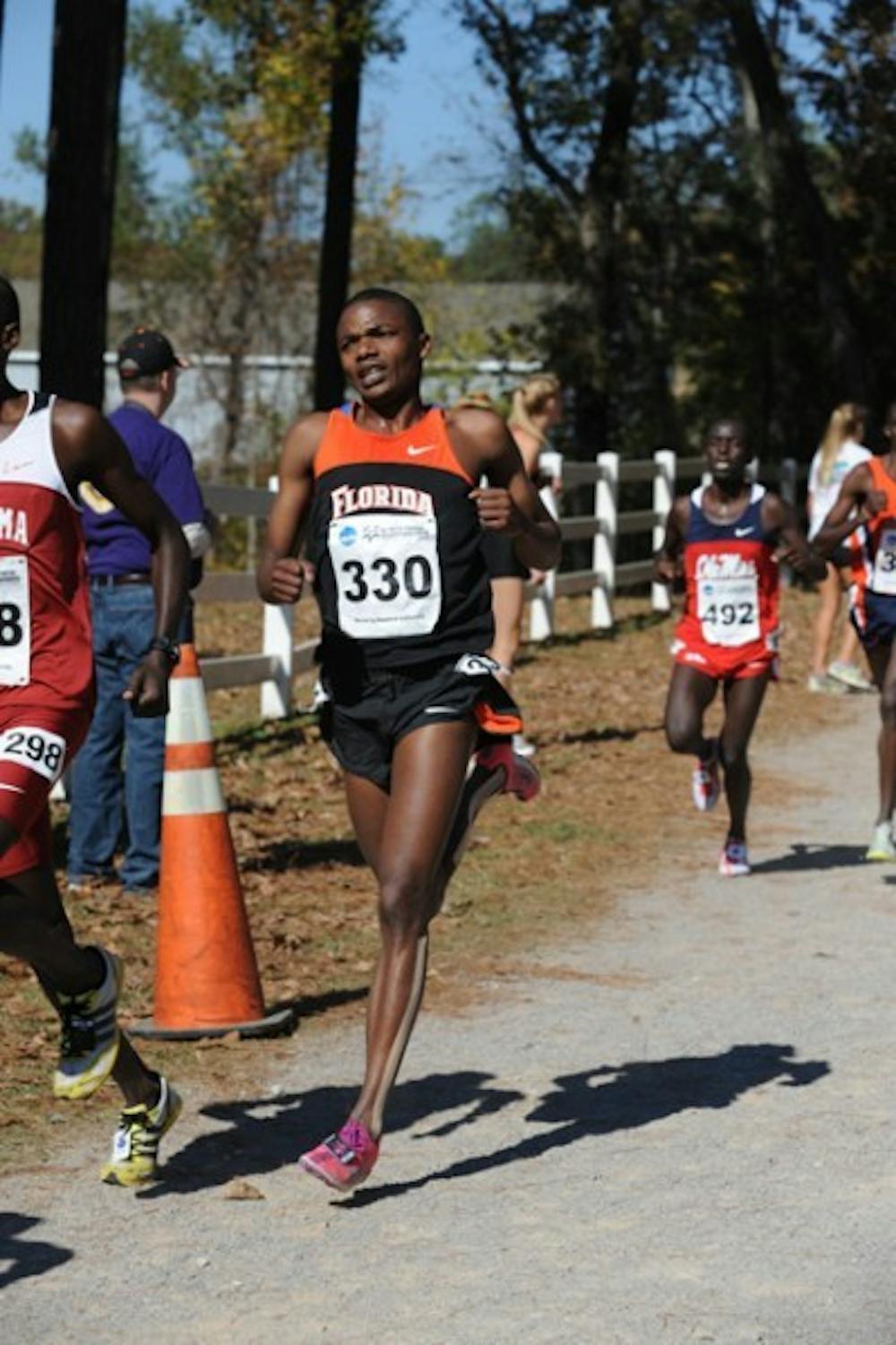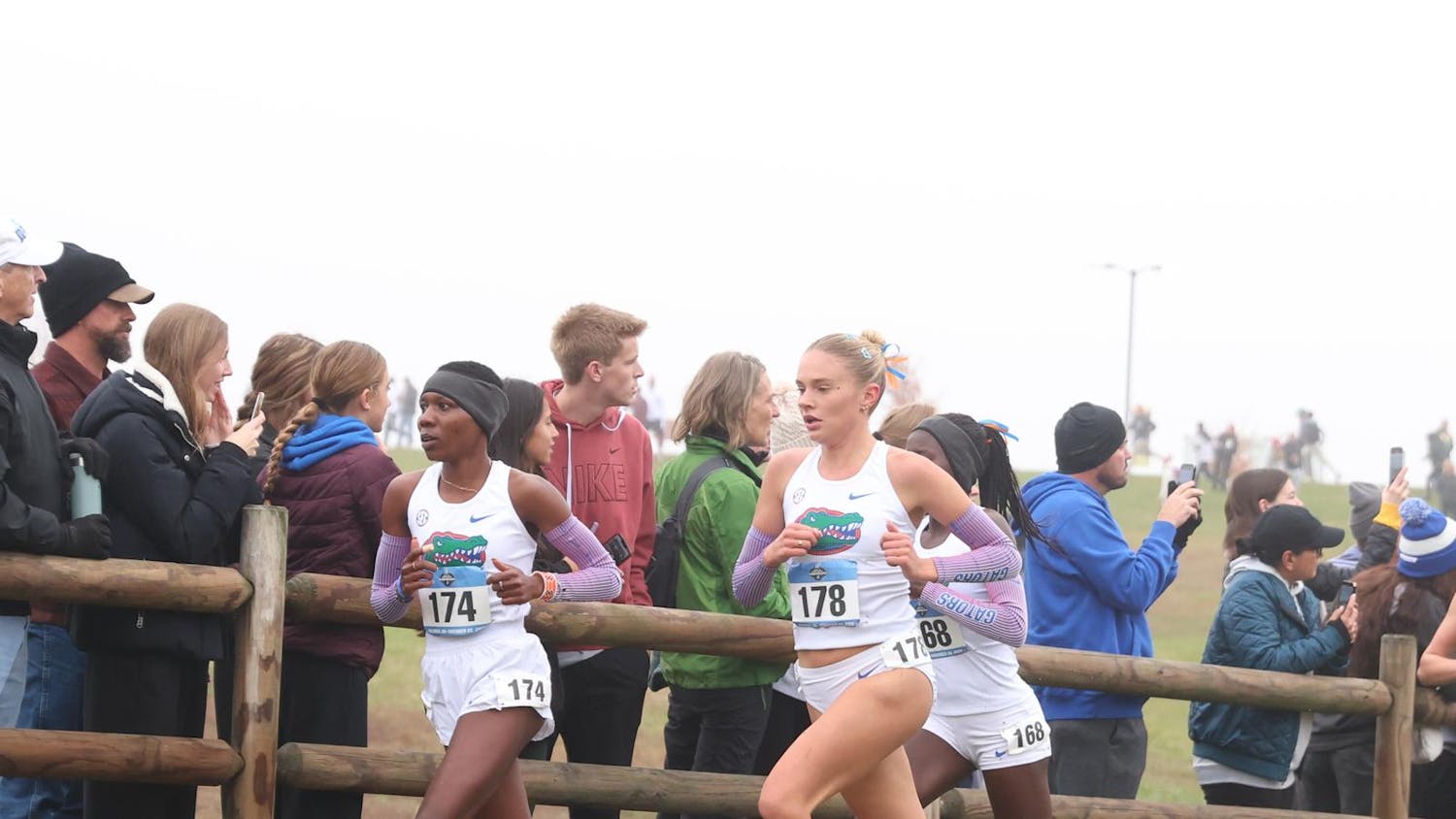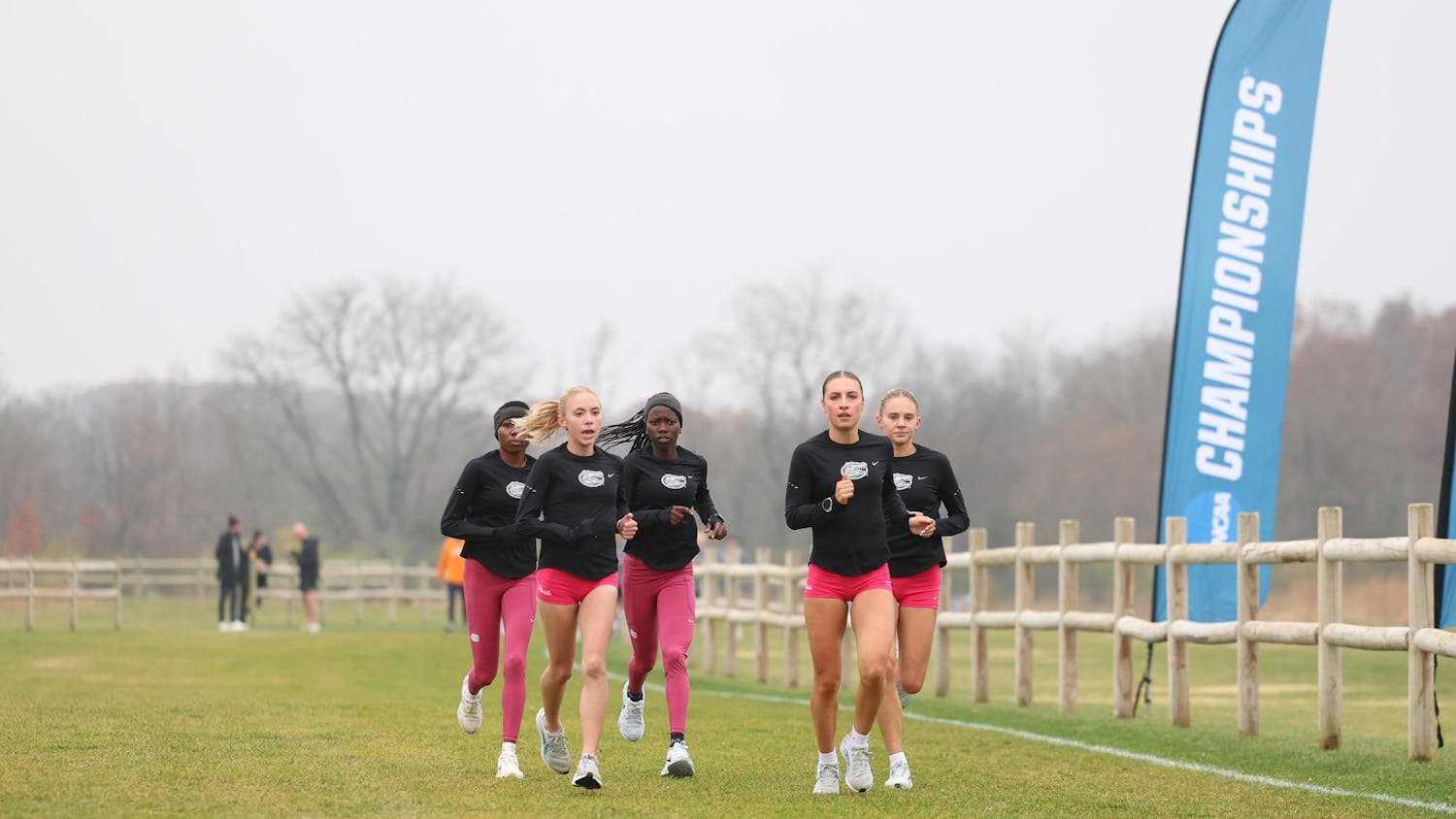Dumisane Hlaselo’s first weeks at the University of Florida can be best described as a culture shock.
During his first six days in the states, the South African track runner couldn’t eat. The foreign food he was given had a different texture and flavor compared to his mom’s usual cooking back in Johannesburg.
As he walked to class in the summer heat, his body still believed it was seven time zones away. Sleep became difficult to manage, and he soon started to feel sick.
In his heavily accented English, Hlaselo asked himself, “What is going on around me?” and “Why did I come?”
Finally, at the end of his first week in Gainesville this summer, he passed out asleep on campus, exhausted from trying to figure out how to function in a new land.
It was an adjustment the 21-year-old never had to make before. He was living in a new country, learning at a new school and dealing with a new way of life.
The only thing Hlaselo, a junior transfer, didn’t have to adjust to was the very thing that brought him to Gainesville in the first place: running.
As he tried to get used to a new life in America, Hlaselo found solace and success on the fields and rolling hills of cross country courses, where he quickly became one of the top runners in the Southeastern Conference.
In the race, he was right at home.
‘Running is Running’
In South Africa, Hlaselo is one of the best runners in his age group and a candidate for the 2012 Olympics. He holds a South African junior record in the 1,500-meter, made his country’s 2008 World Junior Championship team and launched his track career with a win at the 2005 Telstra Zatopek Classic, Australia’s biggest annual race.
“At home, they felt great about it,” Hlaselo said of his Zatopek victory. “I ran almost the best time by a 16-year-old in South African history. It’s something I don’t really know how to explain. To South Africa, it was huge.”
His experience overseas helped him to immediately carry over his talent to NCAA-level competition in the U.S. Hlaselo stepped into the Gators’ cross country lineup as the team’s top runner despite not having any previous experience in the longer style of racing. By November, he had grabbed three top-10 results and finished as the best Florida men’s runner in each race he’d competed in.
“Running is running,” Hlaselo said. “It doesn’t matter where you are. If you can run, you can run wherever you go.”
The South African ran so well this year that he reached the national championship as an individual after the Gators failed to qualify as a team, breaking Florida’s NCAA drought going back to 2008.
Off the course, Hlaselo’s performances and personality immediately endeared him to his teammates, who began to refer to him as “Dumi.” He also brought an energy and sense of professionalism to his training that helped invigorate the men’s team to its best season in two years.
“I’ve been blessed for my last year to be able to train and run with him every day and learn what an elite runner does,” senior James Uthmeier said. “It’s opened my eyes to running and just helped me to excel to a level I didn’t think I could this year.”
Hlaselo became like an adopted brother to the men’s team, UF coach Todd Morgan said. Over Thanksgiving break, he was invited to Uthmeier’s home in Destin to spend his first American holiday with the family.
“It was great; he loved it,” Uthmeier said. “My family enjoyed having him and we had a blast just introducing him to American holiday traditions.”
Although Hlaselo is fitting in well with his team and new friends in America, his thoughts still go back to his mother living in Johannesburg. He doesn’t know when he’ll get to see her again with his growing school and training commitments at UF. Maybe in a year; maybe when he graduates.
“I’m a student; I cannot leave my studies and go to South Africa at the same time,” Hlaselo said. “It’s a long way to South Africa. It’s like a 34-hour flight.”
A Long Way From Home
Even back in South Africa, Hlaselo’s quick legs were giving him opportunities far from home. At 16, he moved from his mother’s home to a boarding school five hours away in Bloemfontein.
The decision to leave was difficult but necessary. His home life was becoming stressful due to his mother’s long hours at work, and he wasn’t getting enough training at his current school.
The move south would solve both of those problems.
But from then until he moved to Gainesville, Hlaselo was only able to visit his mother once every three months or so.
Homesickness is a problem most of the Gators’ international athletes have to deal with frequently, Morgan said. But with athletes on this year’s roster hailing from four different continents, sometimes a phone call home is the only remedy during a busy season.
“He still does get homesick a lot, and we got him in touch with his mom on the phone,” Uthmeier said. “So he’s able to call home a couple times a week.”
Hlaselo said he always knew that one day he would have to leave home for the U.S. in order to make himself into an Olympic-caliber runner. Still, he was hesitant when Morgan offered him a scholarship.
The coach first met Hlaselo when he was running in the 2008 World Junior Championships in Poland, which Morgan described as the Olympics for runners 19 and under. He had heard of Hlaselo’s wins in high school and his record-breaking time in the 1,500-meter from friends in South Africa and knew the runner would be a good fit for the Gators.
After Hlaselo’s race, Morgan told him about UF and Gainesville.
“I was like, ‘What is that?’” Hlaselo said.
When Hlaselo found out just how far Florida was from South Africa, he realized it would take a lot to convince his mother to let him go. But after a couple of months and some follow-up e-mails from Morgan, Hlaselo’s mother decided to again let her son go and follow his dreams.
Morgan couldn’t be happier. Not only was Hlaselo a great runner, he was a great student as well, which would in turn make the difficult NCAA transfer process a little easier.
But Hlaselo’s recruitment hit a speed bump when he missed a crucial SAT date.
“It didn’t work out getting him as a freshman,” Morgan said. “The NCAA doesn’t care. The same rules for a kid that goes to Gainesville High School are the same for one that goes to school in South Africa, so he had to wait two years and transfer (from a college in Bloemfontein).”
Adding to the stress of trying to get students eligible, coaches like Morgan who recruit foreign players also have to deal with the venom some cross country fans have toward bringing foreign runners to American universities.
Most of the hostility, he thinks, is just Internet fodder and jealousy due to the success of international runners lately in the cross country ranks. Five of the last 10 NCAA men’s champions have been international runners.
“If they don’t like it, they need to speed up,” Morgan said of the detractors. “They don’t understand how difficult it is. These kids are earning it, and they’re bettering their lives. I think it’s a great thing and I think, if anything, it makes the U.S. kids that are around better.”
Hlaselo admits he is still working on making the adjustment to life in the U.S., but he thinks he’ll be fully settled in a couple of months. After finding a South African grocery store in Orlando, he’s been able to control his weight, eat the food he likes and sleep better.
With cross country season over, he’ll be moving back to the familiar, flat surface of the track that he was so dominant on back in South Africa.
Hlaselo will be back where he is comfortable.






